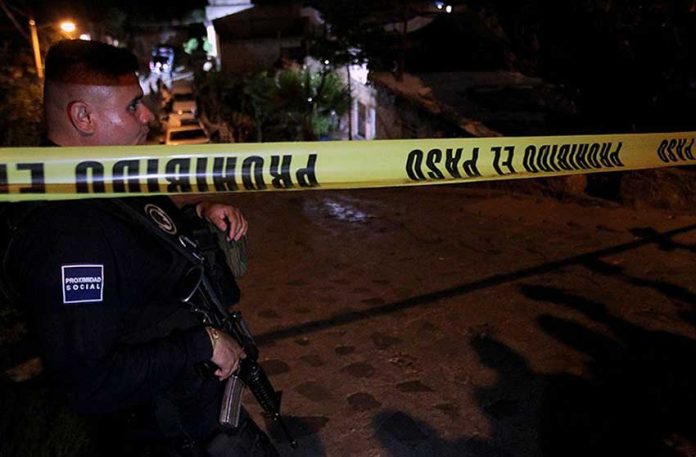Mexico had its most violent year on record in 2018 with more than 33,000 homicides, according to official data.
The National Public Security System (SNSP) reported that there were 33,341 murders last year compared to 28,866 in 2017, an increase of 15%.
The figure is the highest since comparable records were first kept in 1997, underscoring the mammoth task faced by the new federal government to combat violence in Mexico.
Homicide rates began to rise when former president Felipe Calderón launched a militarized war on drug cartels in late 2006. They continued to go up during the six-year term of his successor, Enrique Peña Nieto, who maintained the strategy of using the military to fight crime.
In December, President López Obrador’s first month in office, there were 2,842 homicides, an increase of almost 10% on the number recorded in the same month of 2017.
In sheer numbers, Guanajuato was the most violent state in Mexico last year, recording 3,290 homicides, almost triple the number of 2017.
Fuel theft, a crime that the government is currently cracking down on, is believed to be linked to a large percentage of the murders in the state.
Guanajuato has been hit by turf wars between gangs of fuel thieves known as huachicoleros, who also have been involved in bloody confrontations with police that have left high death tolls.
México state saw the second highest number of intentional homicides, with 2,652 followed by Guerrero, with 2,472 and Jalisco, with 2,420.
In per capita terms, Colima was the most violent state, with just over 81 homicides for each 100,000 inhabitants, followed by Baja California and Guerrero.
Raúl Benítez, a security expert and professor at the National Autonomous University, told the AFP news agency that he believed the increase in violence was linked to a decrease in the military’s willingness to combat drug-related crime.
“I believe that the army became paralyzed to a great extent in operations against drug trafficking due to the fear of being accused of violating human rights,” he said.
Mike Vigil, a former chief of international relations for the United States Drug Enforcement Administration (DEA), said the higher homicide numbers are related to “the conflict between drug-trafficking groups,” especially that between the Jalisco New Generation Cartel (CJNG) and the Sinaloa Cartel.
“But apart from that, there are a lot of drug trafficking groups that are trying to gain more territory, gain more power and go from being a normal criminal group to a transnational one,” he added.
As a central part of its strategy to combat the high levels of violent crime plaguing Mexico, the federal government is proposing the creation of a new national guard.
However, the plan was heavily criticized by non-governmental organizations, which argued that its deployment would only perpetuate the failed militarized crime fighting strategy.
Under pressure, including from within the ruling Morena party, the government announced earlier this month that the security force will have a civilian rather than military command.
The López Obrador-led administration has also floated the idea of legalizing some drugs as part of the efforts to restore peace.
Source: AFP (sp)
